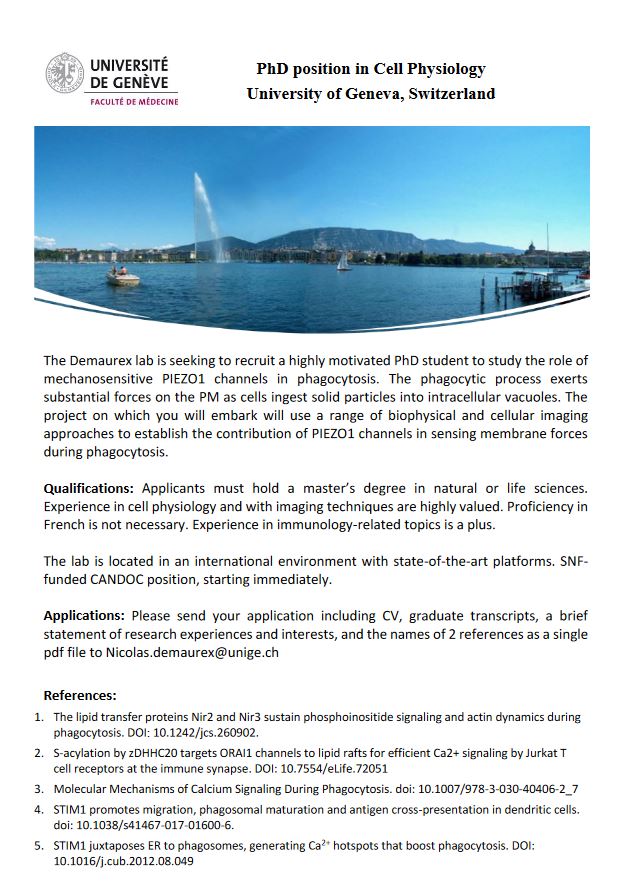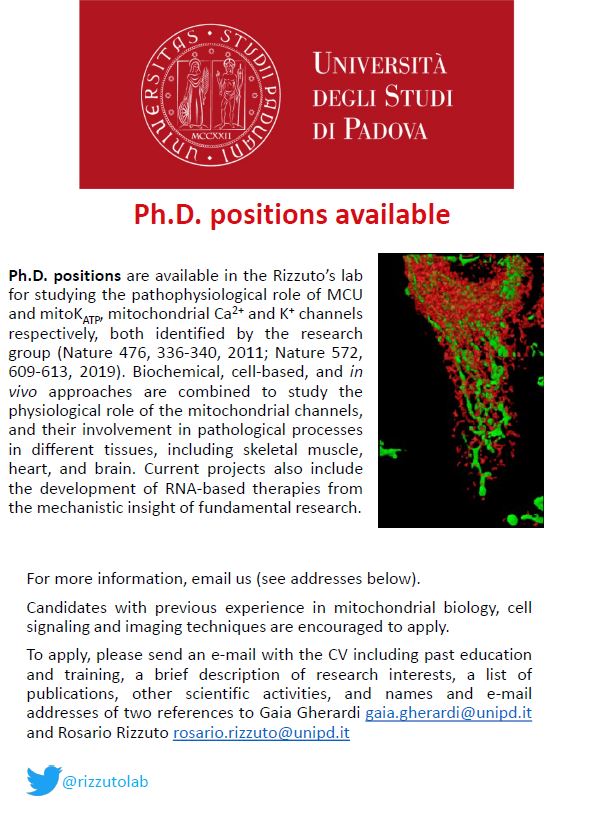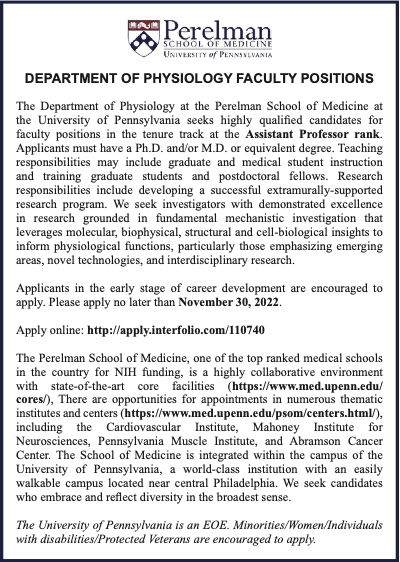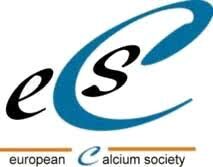open Research positions
A list of research possibilities within the Ca2+ field. Please find more opportunities on our community Facebook page.Posted
March, 2024
Switzerland
New
PhD Position
University of Geneva, Switzerland

Posted
March, 2024
Qatar
New
Postdoctoral Position
Weill Cornell Medicine Qatar (WCMQ)
Machaca Lab
The Machaca Lab invites applications for a postdoctoral position to study the impact of Calcium signaling deregulation in health and disease. We are particularly interested in the roles of store-operated calcium entry (SOCE) and calcium tunneling at the whole organismal levels. The ideal candidate would have extensive expertise in cell biology and imaging. Expertise in mouse studies is a plus.
More details about ongoing research projects and publications from the Machaca Lab are available at https://qatar-weill.cornell.edu/research/research-faculty/machaca-lab
If interested please email your curriculum vitae, including the names and contact details of three referees to Khaled at [email protected].
About WCMQ: WCMQ is located in Education City, Qatar Foundation, Doha, Qatar. Education City is a rapidly growing research hub. The research environment at WCMQ offers a collaborative, multidisciplinary team environment, endowed with a comprehensive support infrastructure, and state of the art core Labs. Details regarding the WCM-Q research program and facilities can be accessed at https://qatar-weill.cornell.edu/research.
WCM-Q postdoctoral associates are appointed by the academic departments at Weill Cornell Medicine in New York.
Posted
January, 2024
USA
Postdoctoral Position
National Institutes of Health, USA
Postdoctoral position is available immediately at the National Institutes of Health in the laboratory of David B. Sacks to study intracellular signal transduction regulated by the Ca2+-binding protein calmodulin and the scaffold protein IQGAP1. Current projects seek to identify new binding partners to those proteins and to explore the biological implications of these interactions in cell function, physiology, and disease (including cancer and diabetes). The research integrates a diverse array of cell biology, biochemistry, and molecular biology techniques.
About the lab: Our laboratory is part of the Clinical Center, located on the National Institutes of Health main campus (Bethesda, MD, USA). The laboratory is fully equipped with standard molecular biology, biochemistry, and cell biology instruments. The candidate will also have access to state-of-the-art on-site facilities for biological imaging, animal handling, biophysics and proteomics among others. Additionally, the NIH Intramural Research Program has a diverse array of seminars by guest speakers and training programs (grant writing, professional development, etc.).
Required qualifications: A background in cell biology, biochemistry and/or molecular biology is preferred, although applications from individuals with experience in other areas of biology are also invited. All applicants must have a Ph.D. and fewer than three years of postdoctoral experience. The position is fully funded for up to five years. Benefits include full family healthcare coverage.
To apply: Please send an email with CV and the names and contact information of at least three references to David Sacks ([email protected])
Posted
January, 2024
Belgium
PhD position in Cell physiology / Neuroscience
University of Louvain - Brussels - Belgium
Project Title
Modulation of mechanosensitive ion channels by lipidic environment. Role in cancer biology.
Overview
Cellular mechanosensitivity plays a key role in the life of the cell, regulating its migration, its proliferation and its death during physiological phenomena such as development. Alteration of cellular mechanosensitivity is implicated in the development of a number of pathologies, including cancer, notably in glioblastoma on which this project is focused. The general goal of this proposal is to better understand how lipid environment of cell membranes affect mechanosensitive ion channels. To achieve this goal, we will combine expertises in cell morphology and mechanics, lipid membrane biophysics and ion channels activity measurements to understand how the composition of the lipid bilayer, its asymmetry and its lateral domains affect mechanosensitive channel gating and clustering.
Principal investigator and host laboratory:
Philippe Gailly, Laboratory of cell physiology - Institute of Neuroscience (IoNS), University of Louvain (Brussels campus), Belgium.
Requirements
The candidate should hold a master's degree in Physiology, Biology, Biophysics, Medicine, Chemistry, Biomedical and Health Sciences or related fields. In addition, the candidate should have a keen interest in ion channel biophysics.
The candidate should be fluent in English and/or French.
The application should include a complete CV, a motivation letter explaining why the applicant is best suited for this project, and 2 letters of recommendation.
The project will start in mid-2024 and run for 4 years. The successful candidate will receive funding for 2 years (renewable) and will apply to competitive PhD fellowships (FRS-FNRS, FRIA).
For more details about the position, please contact Philippe Gailly: [email protected]
Posted
June, 2023
USA
Postdoc Position
The Karakas Lab at Vanderbilt University School of Medicine, located in Nashville, TN, is seeking a highly motivated individual to fill an NIH-funded postdoctoral position. Our research group is dedicated to unraveling the molecular mechanisms of ion channels using state-of-the-art structural biology approaches. The laboratory, situated within the Department of Molecular Physiology and Biophysics, offers access to cutting-edge cores specializing in crystallography, cryo-electron microscopy (cryo-EM), mass spectrometry, and a range of advanced biophysical instrumentation.
We invite you to explore our recent research publications that demonstrate our significant contributions to understanding diverse ion channels and their underlying structural basis:
Structural basis for activation and gating of IP3 receptors (https://www.nature.com/articles/s41467-022-29073-2)
Cryo-EM structures of an LRRC8 chimera with native functional properties reveal heptameric assembly (https://elifesciences.org/articles/82431)
As a Postdoctoral Researcher in our lab, you will work closely with Dr. Karakas, utilizing cutting-edge technologies such as X-ray crystallography, cryo-EM, and various biophysical techniques. You will have the freedom to design and conduct experiments, analyze data, and contribute to the development of novel methodologies.
Candidates should have a Ph.D. in biochemistry, biophysics, or related fields. While prior experience in X-ray crystallography, cryo-EM, or electrophysiology would be advantageous, it is not required. We welcome applicants with diverse backgrounds and a strong interest in applying structural biology techniques to study ion channels.
To apply for this position, please submit the following documents via e-mail to Erkan Karakas at [email protected]:
• Cover Letter: Please provide a cover letter that outlines your research interests, goals, and how your background aligns with our research focus.
• CV: Attach a current curriculum vitae highlighting your educational background, research experience, and publications.
• References: Include the contact information (2-3 references) who can provide insight into your qualifications and potential as a postdoctoral researcher.
We encourage interested candidates to apply as soon as possible. The position will remain open until filled.
For any additional inquiries or further information, please do not hesitate to contact Erkan Karakas at [email protected] or by phone at (615) 343-4494.
Posted
April, 2023
Italy
Ph.D. Position

Posted
January, 2023
U.S.A.
Postdoctoral Position
Postdoctoral position is available immediately to study intracellular signal transduction regulated by Ca2+ and calmodulin. This fully funded position is directed towards elucidating the molecular mechanisms by which signalling pathways are disrupted in human disease, with a focus on cancer and diabetes. The research integrates a diverse array of cell biology, biochemistry and molecular biology techniques to identify the functions of Ca2+/calmodulin, the calmodulin-binding scaffold protein IQGAP1 and their binding partners in signalling. Background in biochemistry, molecular biology or cell biology is required and a Ph.D. within the last three years.
To apply: Please send an email with CV and the names and contact information of at least three references to David Sacks ([email protected])
Posted
September, 2022
U.S.A.
Assistant Professor
At the department of Physiology at the Perelman School of Medicine at the University of Pennsylvania.


